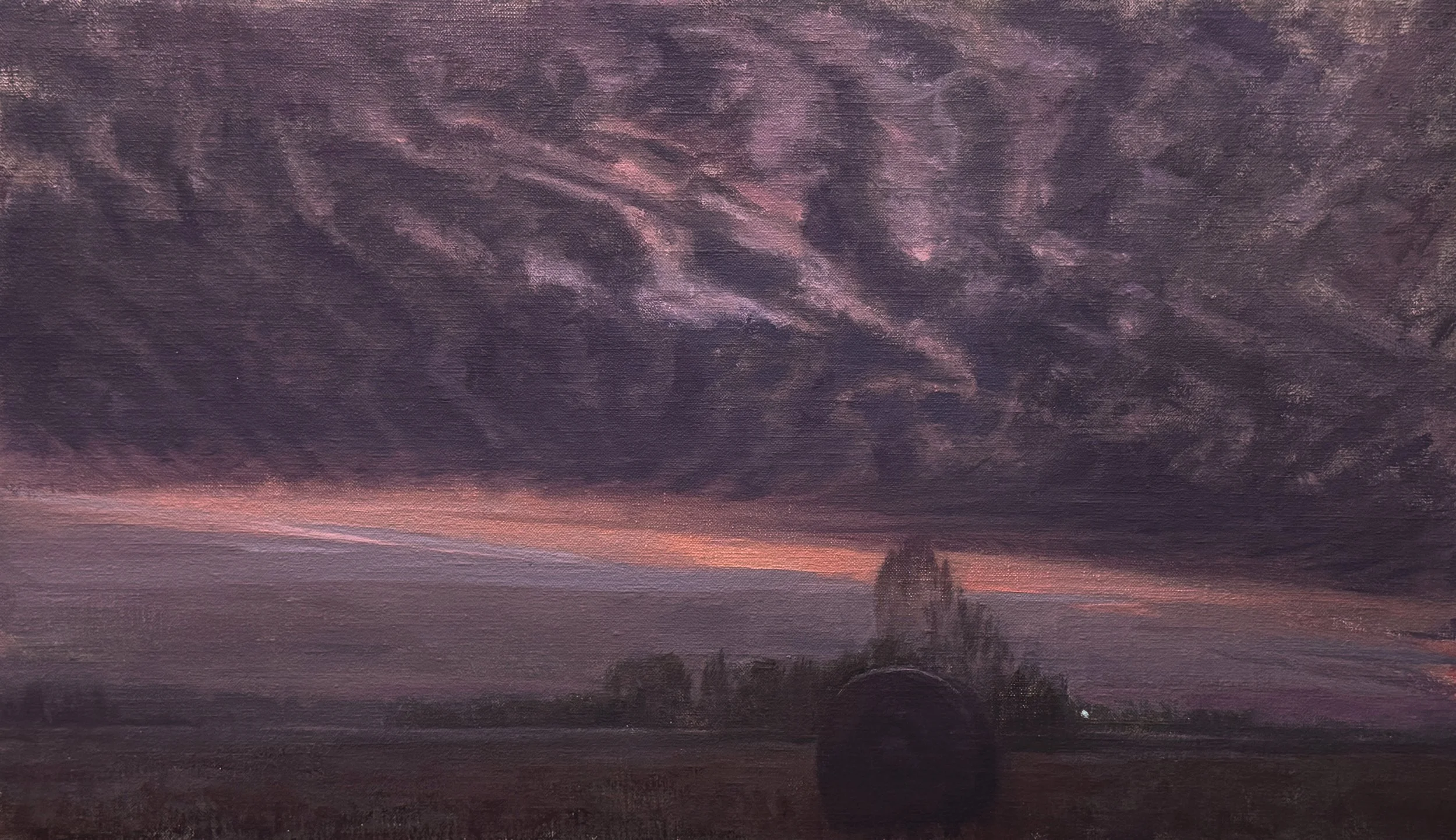Kitezh/Morning and Evening
A couple emails back I shared with you images of a work in progress. It was of light on a creek, and, as I was thinking of losing an uncle and the general “unfit-ness” of my life, I thought I’d call it “Weeping May Endure” from the bible verse, “Weeping may endure for a night, but joy cometh in the morning.”
I was showing you an evening scene - the onset of night and troubles - and not the warm, sunny, victorious morning. Alas, I felt that title a bit too mellow-dramatic, so, just today I titled it “Morning and Evening.” I have a connection to it (the title) even if others do not.
I worked on that painting on and off for a while, never satisfied with my ability.
I got a little further and stopped just today. It isn’t great, but I feel like I got it to sit up if not stand.
The arrangement is not standard. It may even be “bad.” It doesn’t fit into a category compositionally (not easily, anyway…tell me if I’m wrong about this). I left awkwardness in so as to fight against the idea of what is “best.”
About a week ago, I started another painting - a dark view from the family’s field.
My wife came in and saw it and said,
“Hay bale. And a sky.”
…
…
Welp.
Anyway,
it had a real feeling of standing there - a warm night, cloud cover, quiet. While it is unrefined and hastily made, I like it. I like it because I have to adjust to the darkness, to linger so my eyes can catch “movement” just as if I were standing there.
Forms dissolve and reform.
A thin fog lies just off the ground.
There is a sky.
There is a light in the distance.
I remember nights like this from my youth. Alone, it seemed that the world, like the clouds, was so far away - promising wonders to those who rise to them - and that the fields and hills were full of sounds and living things who thought little of a future. Nibbling, listining, flying, crawling, and calling things all come out at night to live in the only moment they know. Never thought I’d envy a fox. A young person may feel the rural life to be a trap, that the fences keep everything in, not just livestock, but a few years on and a few real losses and that same person finds just how much a little land and a fence keep out.
That said, Tennessee is mostly gone.
People don’t sound the same. They change the way they speak so as not to be seen as dumb and backwards. We have chosen (or been force fed) Marshall’s, Petco, Ulta, and all the rest that get installed as a package deal. Everyone cheers. My home looks like everywhere else. We are no one.
Globalism, materialism, and other cultural weights have devoured anything that made small places special - however -
memories remain. Stories remain, so something lives.
And so it was that just yesterday I read a summary of an old Russian folk tale that mingled with my reflections.
(Interested parties can look up something along the lines of “the chronicle of Kitezh” for more)
The tale goes like this (very short version):
Mongols take a city. Being greedy and relentless, they hear of a beautiful monastic city nearby and seek to plunder it as well. After a Russian captive finally relents under torture, the secret way is told to the Mongols and they set out for the city.
Upon their approach, they see no walls or army - only people praying.
They rush forward.
Then, great springs of water burst forth terrifying the invaders and scaring them away. In an unusual turn of events, the Mongols looked back to see the dome of the church with the cross on top vanishing beneath the water.
(Some versions say the city was simply made invisible and so spared.)
Either way, the city would rather vanish than be taken by barbarians.
Allegedly, one can sometimes hear the sound of chiming bells and people singing from under the waters of Lake Svetloyar when the weather is calm. Some stories claim that the most pious individuals may actually see the lights of religious processions (called "крестный ход") and even buildings on the bottom of the lake. - Wikipedia
I’ll leave it to you to wonder about how my thoughts about my home and painting might relate to that story.
Here is the last part of the tale:
"Lake Svetloyar and the city of Kitezh are ingrained in the Russian soul as the symbols of purity, tenacity and immortality. The lake absorbed the city of Kitezh to the end of time and according to legend, it will emerge from it again before the end of the world and the army of the Russian prince will come out of the city’s gates to face Doomsday along with all other Christian souls.”
To appear to be lost.
To vanish.
To want to return.
I am familiar with that.

